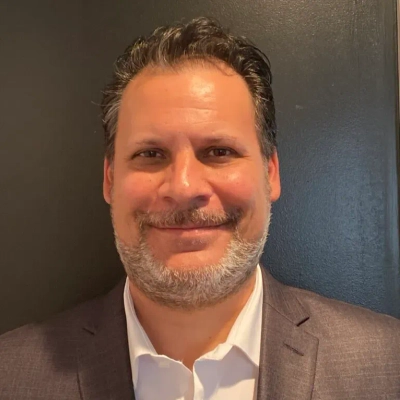24 Financial Tracking Tools that Transform How Small Businesses Manage Finances
Financial management is a critical aspect of small business success, especially in the real estate industry. This article explores X innovative financial tracking tools that are transforming how small businesses handle their finances. Drawing insights from industry experts, these tools offer solutions for everything from real estate investment tracking to expense management and cash flow optimization.
- Stessa Revolutionizes Real Estate Investment Tracking
- Expensify Streamlines Renovation Cost Management
- PropertyRadar Enhances Acquisition Pipeline Forecasting
- JobTread Connects Expenses to Project Phases
- Xero Empowers Data-Driven Property Management
- Notion Customizes Financial Tracking for Lean Operations
- Wave Boosts Profit Margins Through Expense Visibility
- HoneyBook Integrates Client Communication with Finances
- FreshBooks Optimizes Property Flip and Rental Management
- Xero Transforms Financial Operations with Mobile Access
- QuickBooks Provides Instant Cash Flow Insights
- Trello Visualizes Property Acquisition Financial Allocation
- Custom Dashboard Reveals Insurance Reimbursement Patterns
- Deal Analyzer Spreadsheet Enables On-the-Spot Offers
- Spreadsheet Model Tracks Mobile Home Profit Margins
- REI Hub Centralizes Real Estate Investment Data
- FreshBooks Accelerates Billing and Improves Cash Flow
- Zoho CRM Automates Financial Processes
- Carta Clarifies Equity Decisions and Stakeholder Relations
- Inventory Turnover Tracking Optimizes Purchasing Decisions
- Ramp Integrates Real-Time Expense Management
- QuickBooks Online Enables Property-Specific Performance Tracking
- AppFolio Provides Comprehensive Real Estate Financial Dashboard
- HubSpot CRM Tracks Acquisition Expenses and Communication
Stessa Revolutionizes Real Estate Investment Tracking
I implemented Stessa for my real estate investing business, and it's been revolutionary in how I track performance across our 700+ transactions. The property-by-property dashboard gives me instant visibility into acquisition costs, rehab expenses, and holding costs--critical metrics when you're moving quickly in Las Vegas's competitive market. What I particularly value is how it integrates with my engineering mindset; I can drill down into granular data like cost-per-square-foot trends across neighborhoods, which has directly improved our offer accuracy and helped us maintain strong margins even as market conditions shift.

Expensify Streamlines Renovation Cost Management
For me, adopting Expensify completely shifted how I track renovation and holding costs across multiple flips. I can snap a photo of every receipt--from a $5 lock set to a $15,000 roof--and have it automatically categorized and synced with my books. It eliminated the messy box of paper receipts and gave me a real-time view of what each project was actually costing me, which helps me decide faster whether to scale back, hold, or push forward on expenses.

PropertyRadar Enhances Acquisition Pipeline Forecasting
I implemented PropertyRadar for tracking our acquisition pipeline, and it completely transformed how I forecast cash flow across multiple deals. The platform lets me monitor every property from initial lead to closing, automatically calculating holding costs and profit margins based on our actual timeline data. What has been crucial is how it shows me the real cost of extended hold times--when I see a property sitting for 90+ days, I can immediately adjust my marketing strategy or pricing to keep deals moving and protect our bottom line.

JobTread Connects Expenses to Project Phases
I implemented JobTread for managing our renovation budgets, and it revolutionized how we track expenses because it connects every dollar spent directly to specific project phases. For example, when drywall costs ran 30% over budget on a Poughkeepsie flip, I immediately saw the variance and negotiated bulk pricing with our supplier before ordering materials for the next property. This granular oversight ensures we maintain fair offers while delivering quality renovations homeowners can trust.
Xero Empowers Data-Driven Property Management
Switching from our crash-prone desktop financial software to Xero completely transformed how we manage finances across our 31 rental properties. Xero's cloud-based platform not only prevented the data loss issues we previously experienced but also provided us with powerful analytics tools we hadn't anticipated. The system's reporting capabilities helped us identify maintenance patterns across properties, allowing us to implement preventive repair strategies that now save us approximately $2,000 annually per property. This level of financial insight has been invaluable for long-term business planning and profitability.

Notion Customizes Financial Tracking for Lean Operations
Honestly, using Notion as my financial headquarters has been a game-changer--it might not be built for accounting, but I customize dashboards for every property and deal in our pipeline. By tracking everything from offer numbers to rehab budgets and closing timelines in one live workspace, I spot hidden costs and make real-time adjustments, like pausing marketing spend when acquisition fees start creeping up. That level of hands-on visibility helps me run Bright Home Offer lean and lets the team jump straight into problem-solving without wading through piles of spreadsheets.

Wave Boosts Profit Margins Through Expense Visibility
Using Wave transformed our finances through its free expense tracking and receipt scanning features. For each property flip, I snap photos of renovation receipts in the app, which automatically organizes expenses by project. This instant cost visibility allows me to proactively manage margins--on a recent flip, catching an unexpected flooring cost spike early saved us 8% profit by switching suppliers mid-project.

HoneyBook Integrates Client Communication with Finances
I implemented HoneyBook after realizing I needed better project management for our property acquisitions and rehabs. What's been transformative is how it connects client communication with financial tracking--when I'm working with a distressed homeowner, I can document our entire conversation history while simultaneously tracking repair estimates and timeline costs all in one place. This integrated approach has improved my financial oversight because I can see the true cost of each deal, including the time investment, which helps me price our offers more accurately and maintain the trust-based relationships that are essential in this business.

FreshBooks Optimizes Property Flip and Rental Management
I implemented FreshBooks specifically because it handles my unique situation of managing both property flips and Airbnb rentals seamlessly. The time tracking feature is crucial--I can log hours spent on each renovation project and automatically bill them to the property's cost basis, while the invoicing system handles all my Airbnb cleaning and maintenance vendors. Coming from 15 years in restaurants where every penny mattered, having that level of detailed expense tracking per property helps me maintain the lean operation that's allowed me to consistently close 50+ deals annually.

Xero Transforms Financial Operations with Mobile Access
Xero introduced a complete transformation in my ability to manage financial operations. The previous system of spreadsheets overwhelmed me, and I lost track of payment reminders because I spent most of my time away from the office during travel weeks. The single dashboard of Xero provides me with instant cash flow information, invoice tracking, and bank feed synchronization, which I can access through my phone at any cafe.
The client experienced late tax penalties because they consistently forgot to meet their quarterly deadline until we transferred them to Xero and established automatic reminder systems and accountant access. The client has achieved perfect quarterly filing compliance since their transition to Xero with automated reminder systems and accountant access. Clean books, no surprises.
QuickBooks Provides Instant Cash Flow Insights
QuickBooks transformed our spa's financial operations through its implementation. The management of my financial records previously involved manual work with spreadsheets and bank statements, which created monthly disorganization. QuickBooks now provides me with instant cash flow visibility, expense tracking by category, and ingredient cost monitoring down to single dollar amounts.
The main transformation occurred through improved understanding of our financial situation. The report I generated before our seasonal promotion launch revealed our previous quarter's sample product expenses in detail. Our vendor strategy adjustment following the report analysis resulted in an immediate increase in our profit margins.

Trello Visualizes Property Acquisition Financial Allocation
For me, the biggest game-changer has been Trello. It isn't a traditional financial tool, but by creating boards for each property acquisition and renovation, I visually track every single task, deadline, and associated cost from start to finish. This high-level overview helps me see exactly where cash is allocated at a glance. For example, I realized too much was tied up in a single material order for a project in Tacoma, which prompted me to negotiate a staggered delivery and payment plan, freeing up capital for other deals.

Custom Dashboard Reveals Insurance Reimbursement Patterns
The truth is, in my business, cash flow isn't just a number. It's about being able to keep our doors open and continue helping people. For a long time, we were merely reacting to our cash flow, which was a stressful way to run a business. We had to find a way to get a clear picture of our financial situation.
The single financial tracking tool that transformed our business was a simple dashboard that tracks our insurance reimbursements. We used to do this manually, but it was impossible to see the bigger picture. The dashboard helped us see which insurance companies were paying us on time and which ones were not.
It completely transformed our financial oversight. We learned that our cash flow wasn't a static number. It was a dynamic one that was constantly changing. The tool helped us see the patterns in our cash flow that we couldn't see before, and it allowed us to make better decisions about our spending.
My advice is simple: the most effective way to manage a business is to always put people first. The most valuable thing you can do for your business is to be proactive about a person's well-being.
Deal Analyzer Spreadsheet Enables On-the-Spot Offers
For our wholesaling and flipping business, the most critical tool has been our custom-built Deal Analyzer spreadsheet that we've perfected over the years. When we walk through a distressed property, I can plug in the estimated repair costs, and it instantly calculates our maximum allowable cash offer to ensure the deal works for everyone. This clarity allows us to make firm, on-the-spot offers, which removes uncertainty for the seller and lets us focus on creating the win-win solution they need.

Spreadsheet Model Tracks Mobile Home Profit Margins
For our mobile home business, the financial tool that truly transformed our oversight is a simple spreadsheet model we custom-built. It allows us to meticulously track every single line item for each property, from acquisition costs and renovation expenses all the way through to closing fees. This granular detail means we can see exactly what our profit margin is on every home we buy and sell, which helps us quickly identify where we can optimize costs and ensure we're making the most impact with each transaction.

REI Hub Centralizes Real Estate Investment Data
I started using REI Hub, which is built for real estate investors, and it completely changed the way I see my numbers. Instead of juggling spreadsheets, I can now track every flip's income, expenses, and equity growth in one dashboard. For example, when holding costs on a property in St. Louis started creeping up, I caught it right away and adjusted my selling timeline--saving me thousands in interest.

FreshBooks Accelerates Billing and Improves Cash Flow
FreshBooks has been a game-changer for managing our small business finances by streamlining our entire billing process. The platform has cut our invoicing time in half while reducing late payments by 30% through its automated reminder system. Additionally, the customizable invoice templates have significantly improved our payment collection rates, and the clear cash flow insights have enabled us to make more informed financial decisions for our business growth.

Zoho CRM Automates Financial Processes
Implementing Zoho CRM with AI automation capabilities has revolutionized our financial management processes. The system automates invoice processing and expense categorization, which has reduced our administrative workload by 40%. This automation has provided our team with valuable time to focus on strategic planning and growth initiatives instead of manual data entry. The improved financial oversight allows us to make more informed business decisions based on accurate, real-time financial data.

Carta Clarifies Equity Decisions and Stakeholder Relations
Which software or financial tracking tool has changed the way you handle the finances of your small business? In what particular ways has it enhanced your financial management?
Carta is one tool that has changed my life. Its true value is in offering a single source of truth for ownership, equity grants, and investor relations, even though many people only consider it to be a cap table management platform. I can view the financial effects of equity decisions in real-time rather than juggling spreadsheets and manual updates, which directly enhances compliance and strategic planning.
By lowering ambiguity and misalignment, this has improved oversight. Since investors and founders are using the same set of precise, current data, discussions regarding employee option pools, dilution, and fundraising are much more open. In reality, it has replaced hours of reconciliation with clarity, and because stakeholders and employees can trust the numbers they see, this clarity influences not only financial decisions but also cultural ones.

Inventory Turnover Tracking Optimizes Purchasing Decisions
Implementing inventory turnover tracking by product category revealed that we were overstocking slow-moving premium products while running out of mid-range options. This insight helped us reduce carrying costs by 20% and improve cash flow significantly. We now make purchasing decisions based on turnover data rather than gut feelings, which has improved our profit margins across all product lines.

Ramp Integrates Real-Time Expense Management
Which software or financial tracking tool has changed the way you handle the finances of your small business? In what particular ways has it enhanced your financial management?
Ramp has been the most transformative tool for me. It serves as an integrated financial management system that provides real-time visibility into expenditures across the company, making it more than just a corporate card platform. I can see the precise flow of money at any given time, down to the department or vendor level, without having to wait for end-of-month reconciliations.
The biggest improvements have been in accountability and speed. Because approval workflows are integrated, expenses are automatically categorized, and reporting is sufficiently transparent, finance isn't a stand-alone department operating independently; rather, it's closely linked to our daily operations. The shift in oversight is less about "catching up" with numbers and more about using reliable data to guide our decisions proactively. The biggest obstacle to efficiently managing finances has been overcome by the shift from reactive to real-time management.

QuickBooks Online Enables Property-Specific Performance Tracking
Which software or financial tracking tool has changed the way you handle the finances of your small business? In what particular ways has it enhanced your financial management?
For me, QuickBooks Online has been the most revolutionary tool. Although it's well-known, the real change occurred when I integrated it with accounts specific to individual properties, allowing me to track the performance of each investment separately rather than combining them all. I now have a real-time view of cash flow, expenses, and profitability for each property in the portfolio rather than depending on spreadsheets or manual reconciliation.
Oversight has been totally transformed by this. I can rapidly determine which deals are performing well, which require operational or design changes, and where returns may be being eroded by hidden costs. Additionally, it has made reporting to investors and partners easier, providing them with transparent figures that inspire confidence. To put it briefly, the software does more than just track; it offers clarity that guides all decisions, including renovations and purchases.

AppFolio Provides Comprehensive Real Estate Financial Dashboard
For my real estate business, using AppFolio as an all-in-one financial dashboard has saved me a ton of headaches. It automatically links our banking and property accounts, handles everything from rent tracking to maintenance costs on each address, and gives me a daily snapshot of profit and loss. Having that level of real-time clarity helped me spot an unpaid invoice that would have delayed a closing. Keeping deals on track and making sure every dollar is accounted for has been a real game changer.

HubSpot CRM Tracks Acquisition Expenses and Communication
I built a custom CRM in HubSpot that has revolutionized how we track finances across our property acquisitions. It automatically logs every expense tied to a specific homeowner's situation--from inspection fees to cash closing costs--alongside our communication history. This holistic view helped me realize we were overspending $2,500 per deal on redundant title searches in Baldwin County, so we streamlined our vendor process to protect homeowners' equity while maintaining our profit margins.





